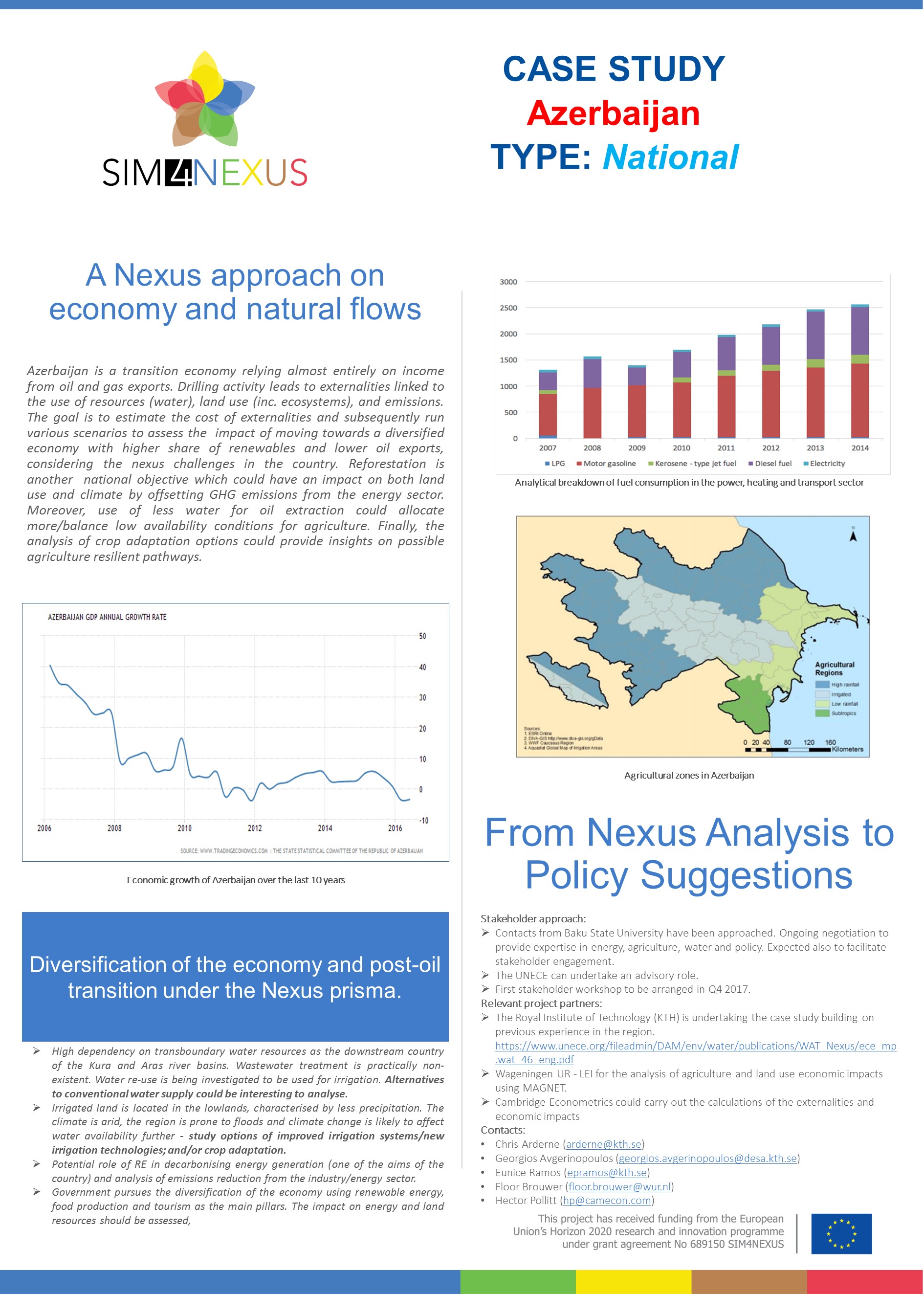Azerbaijan
Lead Partner: KTH with contributions from WUR-LEI and Cambridge Economics
A Nexus perspective for integrated solutions
SIM4NEXUS mapped the interlinkages in the Nexus of water, energy, land, food and climate in the case of Azerbaijan and identified key challenges. The starting point was a review of the Nexus systems in Azerbaijan, which guided the development of a conceptual model. A sectoral policy analysis was also performed. This was reviewed and discussed with local stakeholders at a workshop in Baku in September 2018. In parallel modelling took place: the Open Source energy Modelling SYStem – OSeMOSYS – was applied for the energy modelling with input from the macroeconomic model E3ME, and the Modular Agricultural GeNeral Equilibrium Tool – MAGNET – was used to explore the effects of climate change mitigation measures on agriculture.
Scenarios were modelled: a baseline; a “bad” scenario, with unmitigated climate change impacts; and a ‘good’ scenario, incorporating mitigation and adaption measures.
The gamification of the Nexus provides an opportunity to national stakeholders, e.g., from academia or ministries, for exploring the impacts of different sectoral policies on the Nexus. The Serious Game of Azerbaijan will be used in the exploitation of SIM4NEXUS as an entry example in workshops, education and similar. The Case Study team would like to thank Anar Nuriyev, from the Baku State University, and Dr. Farhad Mukhtarov, from the Erasmus University Rotterdam, for their valuable contribution to the case study.
Click here for more information
For more information please contact:
Viktoria MARTIN
KTH Royal Institute of Technology
Hauke HENKE
KTH Royal Institute of Technology
haukeh@kth.se
Georgios AVGERINOPOULOS
KTH Royal Institute of Technology
